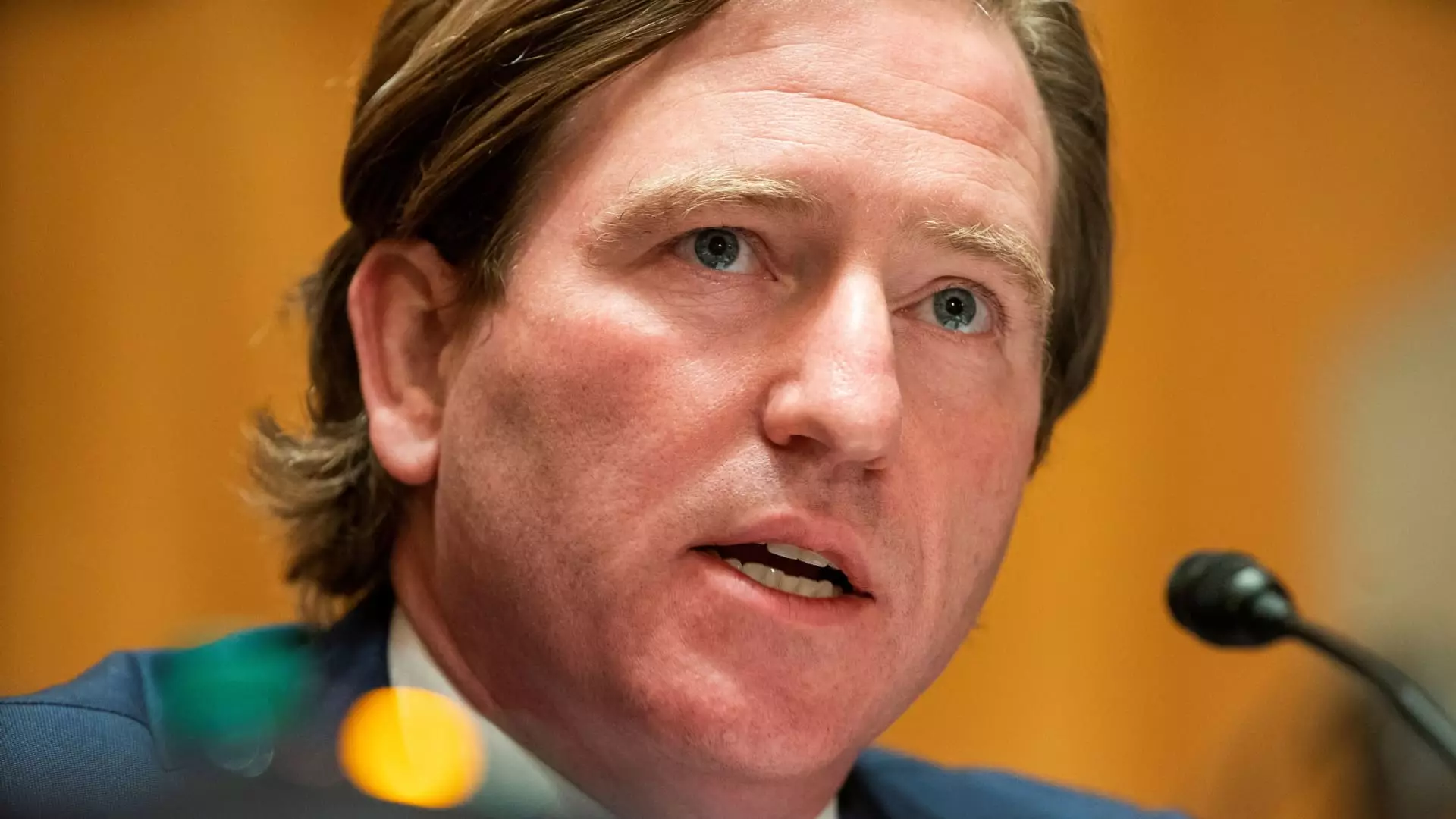The recent decision by former President Donald Trump to target Chris Krebs, the former head of the Cybersecurity and Infrastructure Security Agency (CISA), represents a chilling edge of political warfare that transcends traditional party lines. With a flick of his pen, Trump not only pressured Krebs’ current employer, SentinelOne, but also set a dangerous precedent by singling out individuals based on perceived disloyalty. The ramifications of such an executive order extend far beyond Krebs or SentinelOne; they signal an alarming trend that could undermine democratic institutions and norms.
When a sitting president pressures private corporations to sever ties with individuals for political reasons, it raises ethical and constitutional concerns. This isn’t merely about individual actions; it’s about establishing a climate of fear that can deter potential whistleblowers and honest actors from serving the public in various capacities. The liberties that underpin a functional democracy are imperiled when political vendettas seep into private enterprise, essentially weaponizing the government against citizens unaligned with the political doctrine of those in power.
A New Form of Political Intimidation
Krebs’ resignation serves as a potent symbol of political intimidation. Appointed by Trump in 2018 and later dismissed for acknowledging the integrity of the 2020 election, Krebs embodies the kind of truth-telling that authoritarian figures despise. His Executive Order specifically branded him a “bad-faith actor,” a label that paints a target on his back and any organization, like SentinelOne, that associates with him. This classification of dissenting views as “malfeasance” is a recipe for silencing necessary conversations on governance and freedom—a hallmark of oppressive regimes.
When Trump claimed that Krebs’ actions amounted to censorship of “disfavored speech,” it highlights a tactic all too familiar in political spheres: framing disagreement as a threat to national security or democracy itself. The troubling implication is clear: anyone whose perspective diverges from the administration’s orthodoxy risks losing not just their job but their very livelihood. This chilling reality sends ripples through corporate corridors, fostering a culture where remaining silent is often safer than speaking the truth.
The Corporate Fallout: A Delicate Balance
For companies like SentinelOne, the fallout from Trump’s threats presents a precarious balancing act. On one hand, the company requires government contracts to sustain its growth; on the other, it must navigate the treacherous waters of political affiliation and public perception. The pressure to prioritize corporate interests may lead to self-censorship or the laying low of outspoken personnel to placate the whims of political powers that be.
SentinelOne’s CEO, Tomer Weingarten, while publicly commending Krebs for his contributions, walked a tightrope by acknowledging the necessity of aligning the company’s interests with government agencies. Businesses operating in a democracy should not have to contend with political pressures that require them to align their stances with current government narratives. Yet here we are, as organizations are forced to question whether they support the truth or their bottom line. This is particularly troubling when one considers the national security aspects of cybersecurity, which should be shielded from political machinations.
The Hidden Costs of a Politically Charged Environment
The implications of Trump’s recent actions extend beyond the immediate fallout to the very essence of free speech and expression. By targeting Krebs, who once served as a guardian of cybersecurity integrity, the former president has created an environment where fear supersedes accountability. Those tasked with the honor of protecting American democracy become collateral damage in a battle of narrative and ideology.
A government that resorts to intimidation and fearmongering to silence those who dare to present uncomfortable truths risks eroding public trust. Citizens need to feel assured that governmental and corporate interests prioritize transparency, integrity, and above all, the truth. When political affiliations dictate job security, we run the risk of fostering a society that is deprived of critical debates on pressing issues like election integrity and national security.
An Uncomfortable Reflection on Our Democratic Values
This development begs a broader inquiry: what price are we willing to pay for the ideals of democracy, free speech, and the rule of law? Trump’s actions serve as a litmus test for both the populace and those in power. If we remain passive while authoritarian tendencies flourish in a guise of legitimacy, we tacitly endorse the idea that dissenting voices are expendable.
The case of Chris Krebs should galvanize us toward proactive measures aimed at safeguarding the democratic principles we cherish. It is crucial to stand against political bullying, reaffirm our support for unwavering truth, and protect those – regardless of their affiliations – who bravely speak it. Only then can we hope to restore and fortify the fragile lines defied by political arm-twisting and power plays.

